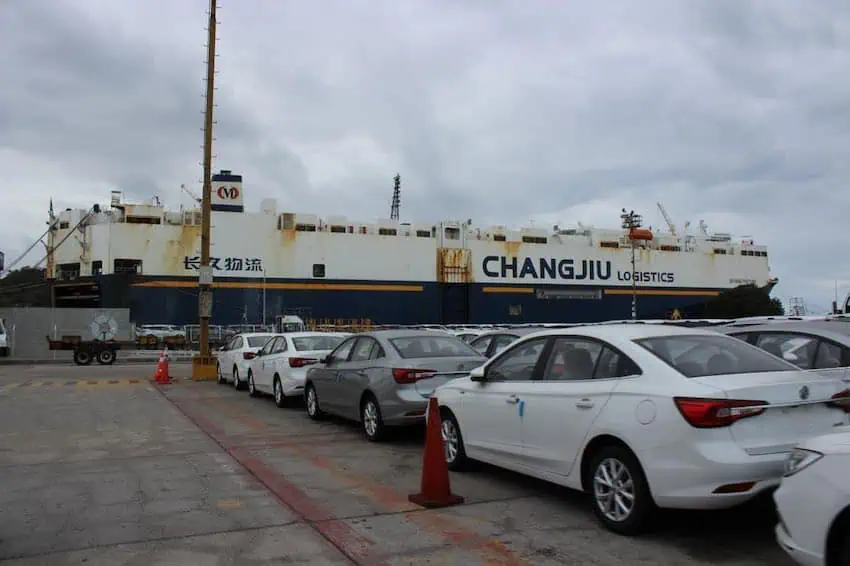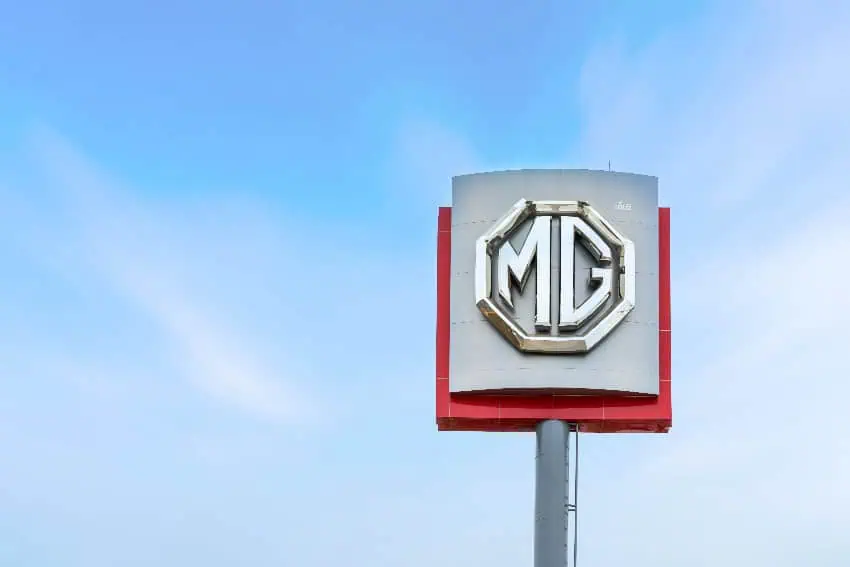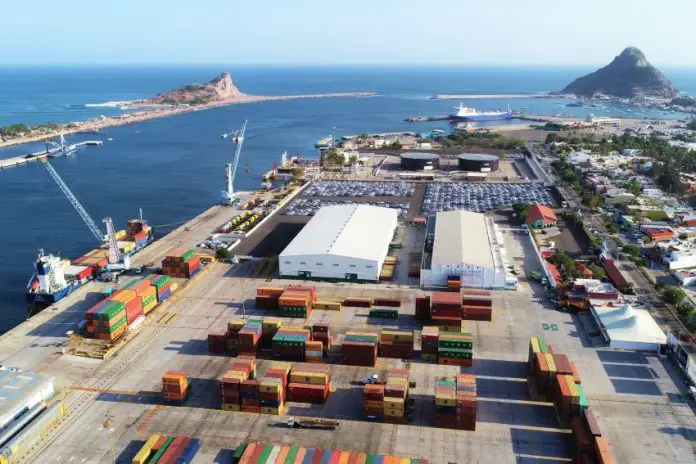The massive influx of Chinese vehicles to Mexico in the past two years has increasingly saturated the country’s Pacific coast ports.
Adjustments in logistical operations and substantial investments in infrastructure have helped normalize port services, but experts agree that more is needed. Some are eyeing the port of Mazatlán, Sinaloa, as a potential solution to the problem.

Until 2022, Mexico’s Gulf coast ports dominated the auto import business, with most vehicles arriving from Europe and Brazil. Now, according to the newspaper El Financiero, nearly half of new imported vehicles coming into the country’s ports arrive from China.
Arrivals at Lázaro Cárdenas (Michoacán), Mazatlán (Sinaloa) and Manzanillo (Colima) on Mexico’s west coast have surged, with Mazatlán becoming the main beneficiary.
Official data shows Lázaro Cárdenas as the No. 1 recipient of new auto imports, however, Mazatlán has climbed to No. 3 with arrivals rising from an annual average of roughly 25,000 to more than 130,000 auto imports through September of this year.
The news magazine Expansión reports that Mazatlán port officials hope to exceed 180,000 new vehicle imports by the end of 2024.
Autos chinos llegan a México apilados como ‘Legos’
Desde colocar autos en posición vertical dentro de contenedores hasta adquirir camiones propios para su traslado, la saturación logística en los puertos ha llevado a implementar soluciones creativas.
Por: @TzuaraDeLuna
📸:… pic.twitter.com/rdMoMa7bjN— Expansión (@ExpansionMx) November 1, 2024
As a result of this import boom, investors are scrambling to upgrade facilities while also attending to the satellite industries, such as warehouses and storage yards, that are increasingly popping up around the Sinaloa resort city.
However, new challenges have arisen.
Chinese shippers have found it more cost-effective to ship the vehicles in containers (arranging them vertically) rather than on the traditional ROROs (roll on/roll off cargo ships). This means cranes are needed to offload the containers while a different apparatus is needed to remove each vehicle.
The increased arrivals also require more efficient operations, another factor in Mazatlán’s favor.

While Lázaro Cárdenas has better infrastructure, Chinese auto importers must compete with a larger cast of importers there. As Mazatlán’s port operations began to grow, Chinese automakers looking to expand in Mexico, such as MG Motor, saw benefits to arriving at the Sinaloa port.
“The advantage we have in unloading (vehicles) in Mazatlán is a more stable flow,” Josimar Hernández, manager of MG México, told Expansión. “We can unload some in Lázaro Cárdenas and others in Mazatlán, depending on inventory needs.”
Should Mazatlán become a specialized automotive port? Experts weigh in
As demand for Chinese vehicles in Mexico continues to rise — El Financiero reported that demand has risen from 9.6% in 2019 to 18% in 2023 — one industry expert thinks Mazatlán should consider becoming a specialized port.
Mario Veraldo, co-founder of logistics firm MTM Logix, believes converting Mazatlán into an automotive port could be a winning move.
Without fully sacrificing operations to manage other types of merchandise, Veraldo told Expansión, reorienting the port would attract investments from and streamline cooperation with the entire supply chain in the automotive industry.
Mauricio Ortiz, director of the port’s cargo services provider Terminal Marítima Mazatlán (TMAZ), told Expansión that such a reorientation is worth considering, especially because TMAZ views the automotive sector as a key segment of port operations.
New infrastructure investments in Sinaloa
As reported by Expansión, TMAZ is preparing investments of US $30 million to upgrade infrastructure and build external storage facilities at the port over the next five years. But Ortiz says he expects nearshoring volumes — particularly in the automotive sector — to increase during those five years.
“What we are seeing with the relocation of [Chinese] auto assembly plants indicates they have interest in providing for the Mexican and Latin American markets,” he said. “First they build up import volume, generating critical demand, and then they’ll make decisions related to factory installation.”
Several Chinese automakers have expressed interest in nearshoring manufacturing to Mexico, including BYD and MG, which will put additional pressure on parts volume at Mexico’s Pacific ports.
Meanwhile, less than 100 kilometers north of Mazatlán, plans to construct a port between the towns of Mármol and Dimas are moving forward after a prolonged pause.
The port, a joint venture of Mexico-based Caxxor Group and Texas-based Puerto Verde Holdings, is still in the studies and permitting stage. However, according to Sinaloa’s Economy Minister Javier Gaxiola Coppel, there is interest from U.S. investors in financing the initial stage of construction, which is estimated to require approximately $400 million.
In November, Gaxiola Coppel will travel again to Texas to continue negotiations, as reported by the news outlet Punto MX. There, he will meet with representatives of the governments of Durango, Coahuila, Chihuahua and Nuevo Leon regarding the “T-MEC corridor,” which seeks to improve logistics infrastructure between Mexico and the United States.
This new port — reported to have the potential to become “the most important in the country” — is viewed by state officials as complementary rather than a rival to Mazatlán.
With reports from Expansión, Debate, El Siglo de Torreón and Portal Portuario
